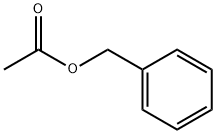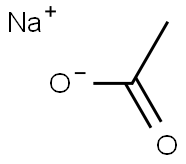Di(propylene glycol) methyl ether acetate
Synonym(s):DOWANOL DPMA
- CAS NO.:88917-22-0
- Empirical Formula: C9H18O4
- Molecular Weight: 190.24
- MDL number: MFCD00144160
- EINECS: 406-880-6
- SAFETY DATA SHEET (SDS)
- Update Date: 2024-12-18 14:15:30

What is Di(propylene glycol) methyl ether acetate?
Chemical properties
Di(propylene glycol) methyl ether acetate is colorless liquid
The Uses of Di(propylene glycol) methyl ether acetate
Di(propylene glycol) methyl ether acetate is a solvent, it is also used as a formula stabilizer and to improve skin penetration in topically applied acne preparations containing erythromycin.
General Description
Di(propylene glycol) methyl ether acetate (DPMA, 3-(3-methoxypropoxy)propyl acetate) is extensively employed as a solvent in coatings and silkscreening inks. It is also used as a cleaning agent. In vivo, DPMA rapidly hydrolyzes to dipropylene glycol methyl ether (DPM), thus, the in vivo effects of DPMA are expected to be the same as those of DPM.
Flammability and Explosibility
Non flammable
Properties of Di(propylene glycol) methyl ether acetate
| Boiling point: | 200 °C(lit.) |
| Density | 0.97 g/mL at 25 °C(lit.) |
| vapor pressure | 10.4Pa at 20℃ |
| refractive index | n |
| Flash point: | 186 °F |
| solubility | 750g/L in organic solvents at 20 ℃ |
| Water Solubility | 183g/L at 20℃ |
| CAS DataBase Reference | 88917-22-0(CAS DataBase Reference) |
| EPA Substance Registry System | Propanol, 1(or 2)-(2-methoxymethylethoxy)-, acetate (88917-22-0) |
Safety information for Di(propylene glycol) methyl ether acetate
| Signal word | Warning |
| Pictogram(s) |
 Exclamation Mark Irritant GHS07 |
| GHS Hazard Statements |
H315:Skin corrosion/irritation H319:Serious eye damage/eye irritation H335:Specific target organ toxicity, single exposure;Respiratory tract irritation |
| Precautionary Statement Codes |
P261:Avoid breathing dust/fume/gas/mist/vapours/spray. P264:Wash hands thoroughly after handling. P264:Wash skin thouroughly after handling. P271:Use only outdoors or in a well-ventilated area. P280:Wear protective gloves/protective clothing/eye protection/face protection. P302+P352:IF ON SKIN: wash with plenty of soap and water. P305+P351+P338:IF IN EYES: Rinse cautiously with water for several minutes. Remove contact lenses, if present and easy to do. Continuerinsing. |
Computed Descriptors for Di(propylene glycol) methyl ether acetate
Di(propylene glycol) methyl ether acetate manufacturer
SOMU Solvents Pvt.Ltd
1Y
Phone:+91-8026783595
product: 88917-22-0 Dipropyleneglycol methyl ether acetate 99%
New Products
Tert-butyl bis(2-chloroethyl)carbamate 4-Methylphenylacetic acid N-Boc-D-alaninol N-BOC-D/L-ALANINOL 3-Morpholino-1-(4-nitrophenyl)-5,6-dihydropyridin- 2(1H)-one Furan-2,5-Dicarboxylic Acid Tropic acid 1,1’-CARBONYLDIIMIDAZOLE DIETHYL AMINOMALONATE HYDROCHLORIDE R-2-BENZYLOXY PROPIONIC ACID 1,1’-CARBONYLDI (1,2-4 TRIAZOLE) N-METHYL INDAZOLE-3-CARBOXYLIC ACID (2-Hydroxyphenyl)acetonitrile 4-Bromopyrazole 5-BROMO-2CYANO PYRIDINE 5,6-Dimethoxyindanone 5-broMo-2-chloro-N-cyclopentylpyriMidin-4-aMine 2-(Cyanocyclohexyl)acetic acid 4-methoxy-3,5-dinitropyridine 2-aminopropyl benzoate hydrochloride 1-(4-(aminomethyl)benzyl)urea hydrochloride diethyl 2-(2-((tertbutoxycarbonyl)amino) ethyl)malonate tert-butyl 4- (ureidomethyl)benzylcarbamate Ethyl-2-chloro((4-methoxyphenyl)hydrazono)acetateRelated products of tetrahydrofuran








You may like
-
 88917-22-0 Dipropyleneglycol methyl ether acetate 99%View Details
88917-22-0 Dipropyleneglycol methyl ether acetate 99%View Details
88917-22-0 -
 Di(propyleneglycol)methyletheracetate, 99% CAS 88917-22-0View Details
Di(propyleneglycol)methyletheracetate, 99% CAS 88917-22-0View Details
88917-22-0 -
 Di(propylene glycol) methyl ether acetate, mixture of isomers CAS 88917-22-0View Details
Di(propylene glycol) methyl ether acetate, mixture of isomers CAS 88917-22-0View Details
88917-22-0 -
 Di(propylene glycol) methyl ether acetate, mixture of isomers CAS 88917-22-0View Details
Di(propylene glycol) methyl ether acetate, mixture of isomers CAS 88917-22-0View Details
88917-22-0 -
 1975-50-4 98%View Details
1975-50-4 98%View Details
1975-50-4 -
 14714-50-2 (2-Hydroxyphenyl)acetonitrile 98+View Details
14714-50-2 (2-Hydroxyphenyl)acetonitrile 98+View Details
14714-50-2 -
 118753-70-1 98+View Details
118753-70-1 98+View Details
118753-70-1 -
 733039-20-8 5-broMo-2-chloro-N-cyclopentylpyriMidin-4-aMine 98+View Details
733039-20-8 5-broMo-2-chloro-N-cyclopentylpyriMidin-4-aMine 98+View Details
733039-20-8
Statement: All products displayed on this website are only used for non medical purposes such as industrial applications or scientific research, and cannot be used for clinical diagnosis or treatment of humans or animals. They are not medicinal or edible.